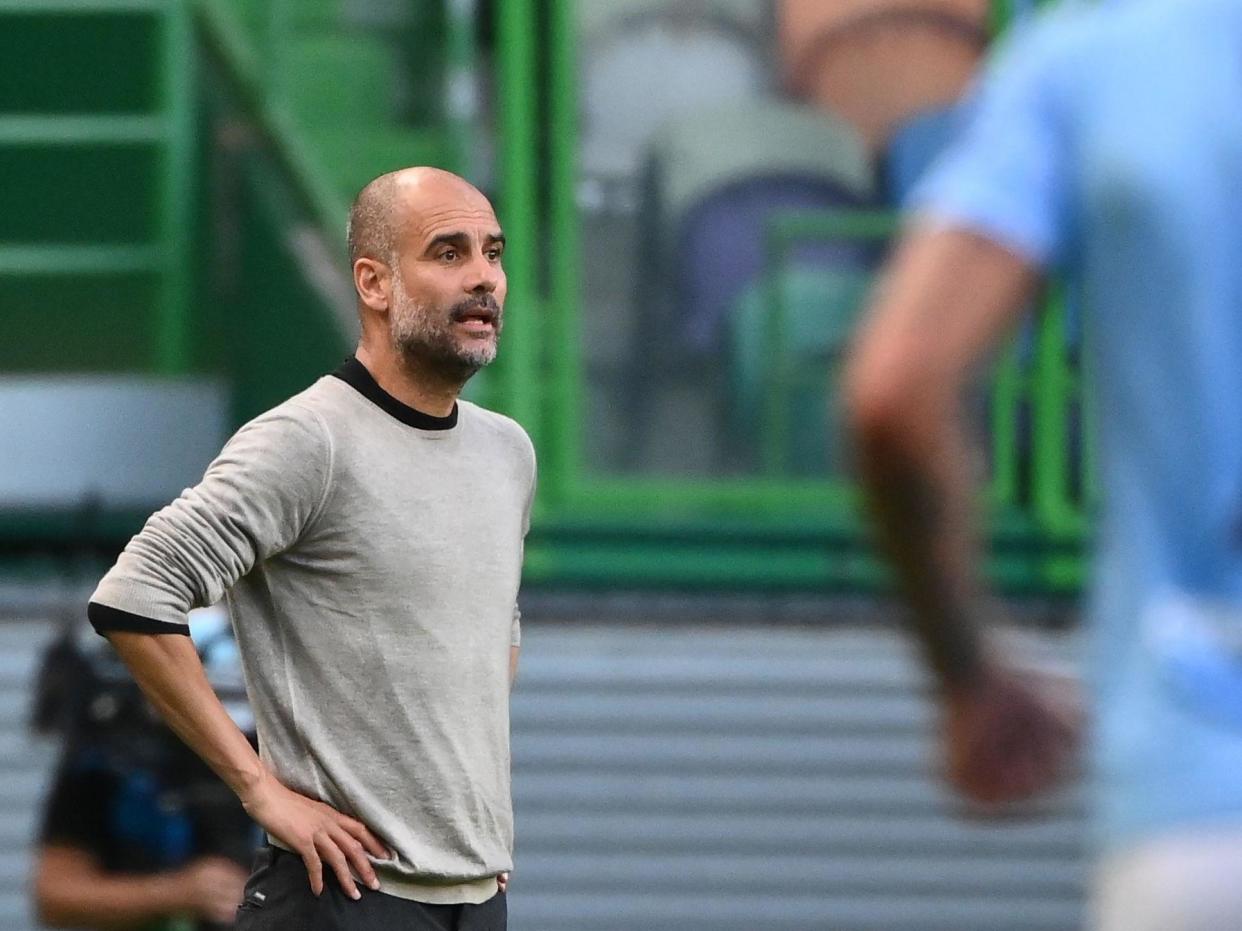Pep Guardiola’s tactical tinkering leaves disjointed Man City without the firepower to beat Lyon

It took 36 minutes for David Silva, Bernardo Silva and Riyad Mahrez to begin vigorously warming up on the touchline at Estadio Jose Alvalade. City were 1-0 down, had not yet taken a shot, and wore the look of a team with a big game coming up on the weekend more than one immersed in a Champions League quarter-final on one of the biggest nights in the club’s history.
As the match kicked off and blue shirts fanned into a 3-4-3 formation matching Lyon’s own setup, the wonder was just how long it would take for Guardiola to rip it all up and start again. Because we had seen this somewhere before. Would it be 18 minutes, like his Bayern Munich side against Barcelona in 2015? Or simply not at all, as he later admitted of Bayern’s 4-0 defeat by Real Madrid in 2014?
It would be a mistake to think Guardiola’s tactical tinkering never succeeds. You only need look back at their win over Real Madrid in the Bernabeu in February to see how it can pay off handsomely to surprise an opponent. That night he even caught his own team off guard, as makeshift striker Kevin De Bruyne admitted. “I think in the four years we are here with Pep we had some surprises,” he said. “Even the players, they don’t really know until the game starts what we need to do.”
But there are times, like this evening in Lisbon, when it can seem like Guardiola has shown too much respect to his opponent, when combating their strengths is a zero-sum game stunting his own team’s imagination in the process. Here City were not only without their usual formation, but their characteristically seamless movement packed up and left with it.
City’s only moment of threat in the first half came in a combination between their only two inventive players on the pitch. Kevin De Bruyne swept a beautiful pass with the outside of his right foot to Raheem Sterling darting on the far side of the box, whose shot was well blocked by Lyon goalkeeper Anthony Lopes.
It was a moment of promise and yet it also served to highlight City’s sparse spread across the pitch. The tight link-up play that distinguishes a Guardiola team was non-existent, partly because of a formation which didn’t allow it, but mostly because crucial parts of the fabric holding it all together – usually David Silva, sometimes Bernardo, more recently even Phil Foden – were on the bench.
This time, plan A lasted 55 minutes. Mahrez came on for Fernandinho, Guardiola switched to a 4-3-3, and suddenly City seemed to click together like a jigsaw. Chances gradually presented themselves: a free-kick for De Bruyne, then another, before the equaliser: it came from those two starters, De Bruyne and Sterling, yet where they were distant outposts in the first half, here Sterling got to his customary byline wriggle and De Bruyne arrived in his customary 18-yard zone to slap inside the far post with his side foot.
But barely 10 minutes later Lyon were back in front. Rudi Garcia had his own firepower on the bench and the substitute Moussa Dembele raced through to score their second. David Silva replaced Rodri, but it was too little too late. Sterling missed a clear open goal that might have changed the narrative, but Dembele added a third a minute later to seal City’s fate. Another year, another inexplicable, almost unnecessary Champions League exit.
In Marti Perarnau’s book Pep Confidential, Guardiola opens up on the night Bayern lost to Madrid 4-0 in Germany and how he thought so deeply about that game in the build-up that he convinced himself to turn away from the tactics that had served his team so well all season. This game carried alarming parallels, and six years later it seems Guardiola is still making the same costly mistakes.
Read more
5 things we learned as Dembele double heaps more misery on City

 Yahoo News
Yahoo News 
